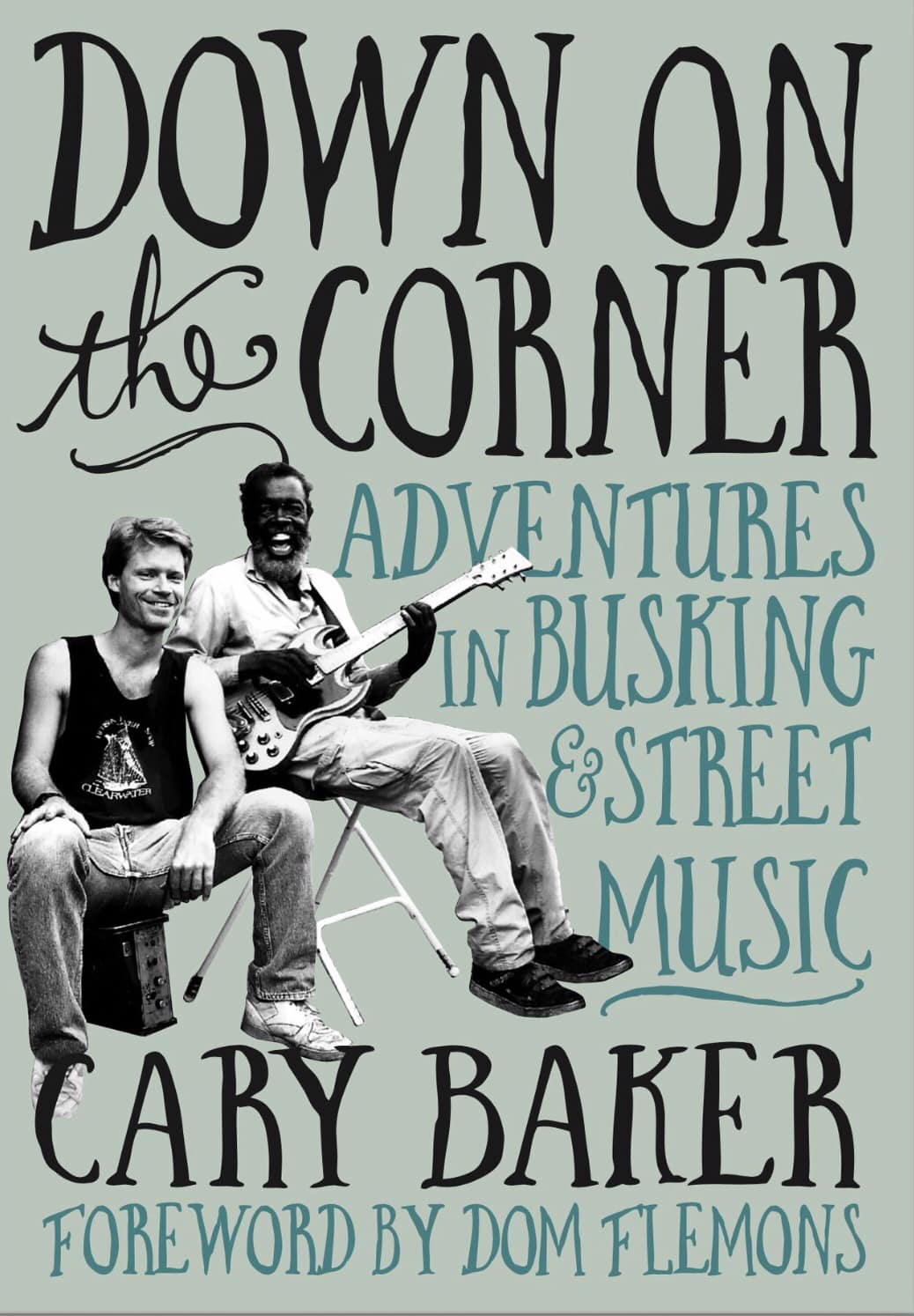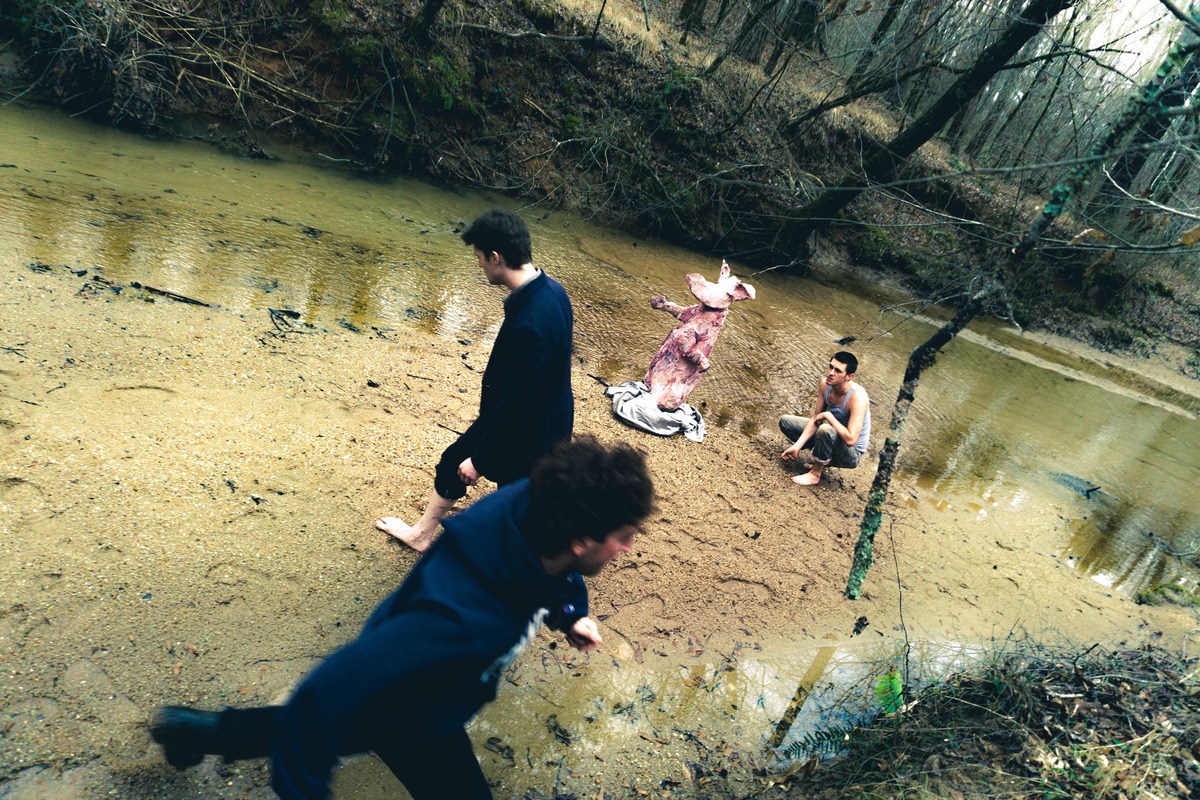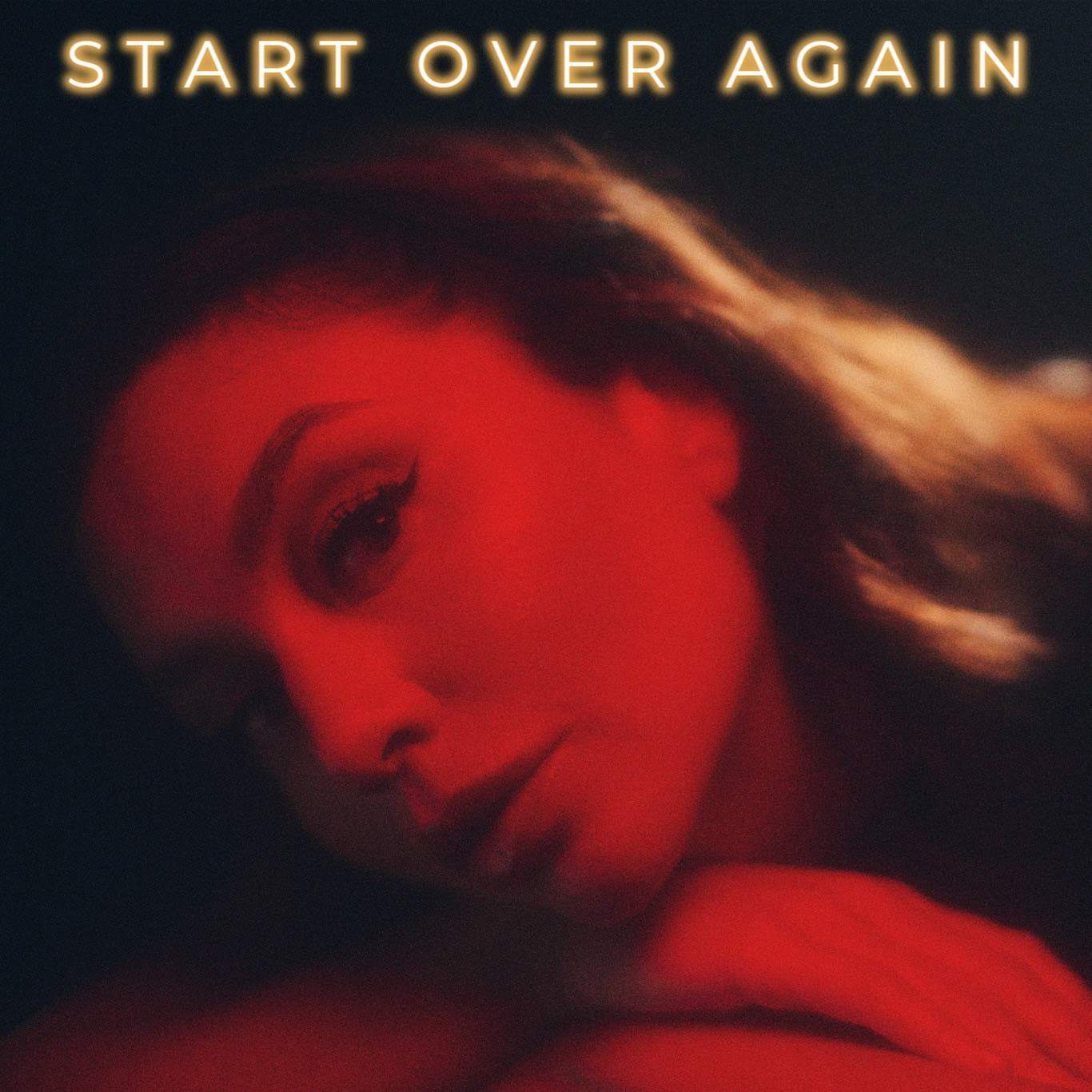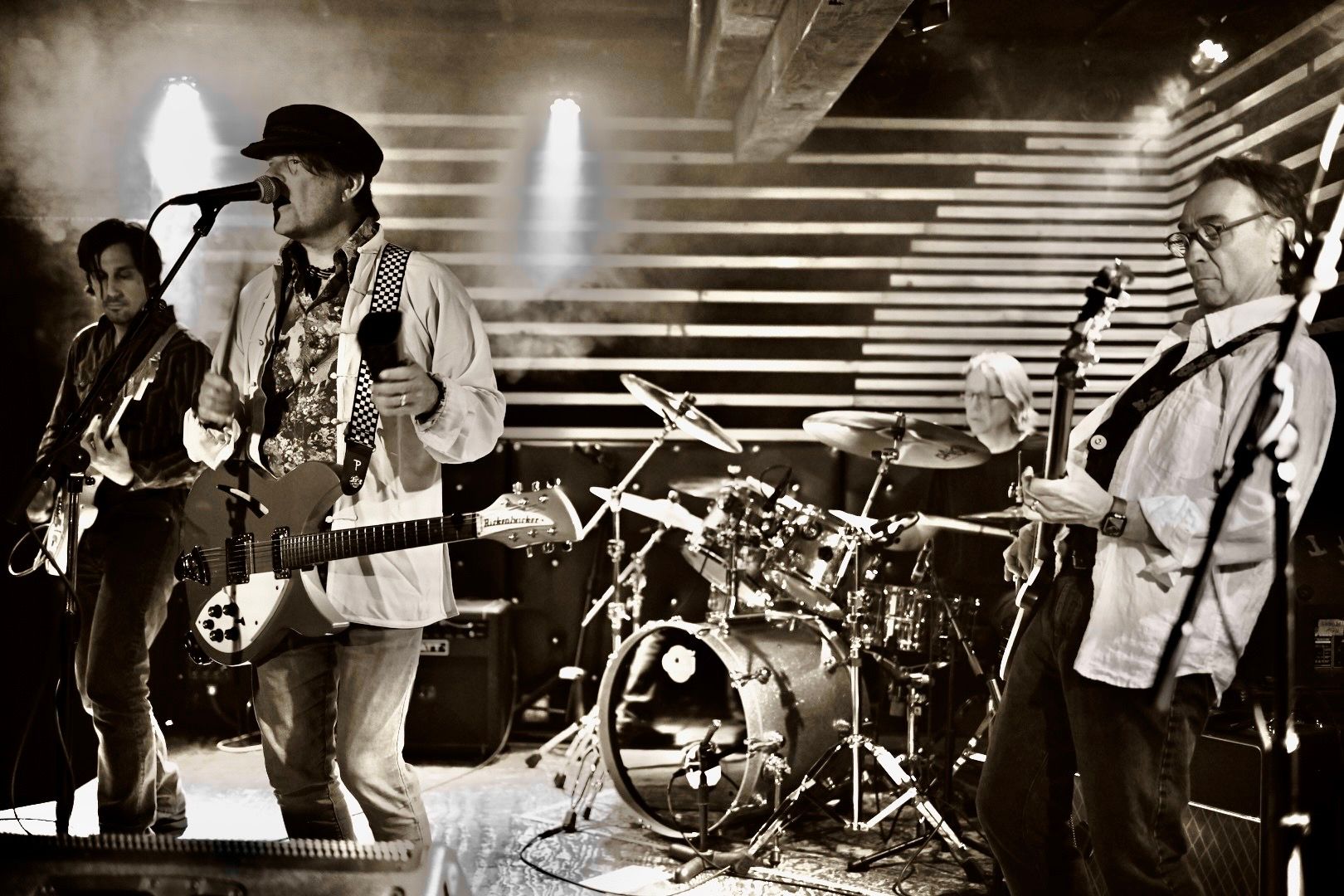Down on the Corner: Adventures in Busking and Street Music by Cary Baker
I had a brief experience with busking in the early 1990s. I formed an impromptu band with a cast of unwashed outsiders I met at a party in Norfolk, Virginia, where we all then lived.
On our first night of playing together in a group home that was fit for about four residents but actually housed around 20 wild souls, we pulled an all-nighter and by morning had five original songs. Excited, and too wired to sleep, we wanted to perform our spontaneous mini setof anthem-heavy cosmic pop/folk/rockright then. Around 11:00 a.m. or thereabouts, we walked to the campus of Old Dominion University and there started performing an unofficial concert as as an uninvited act. We played for maybe two hours. Some of the college students, faculty and staff who crossed our path on the quad applauded us, some jeered at us, but most ignored us. My guitar case was open in front of us, inviting tips (some might say alms), and we were stoked to find that at the end of our performance we’d collected something like 11 dollars. Beer run time!
The next day, we decided to try our street performance antics again. But this time we set up camp on the steps of a festival marketplace mall in the downtown area. We were out there for less than five minutes before the manager of one of the complex’s shops came out and told us we looked and sounded terrible and were apt to scare away customers, so shoo. We ignored her and kept playing, but then a mall security rent-a-cop appeared and said we couldn’t play out there without a permit, and Norfolk police were on the way, already scribbling out costly citations they’d hand us. We skedaddled.
That band didn’t last long, but over just that two-day adventure, we experienced some of the highs, lows, and in-betweens that buskers/street musicians have routinely gone through over the ages and around the globe. In this new book that’s due out in November, longtime music journalist and former publicist Cary Baker captures the unpredictable history of the busking experience.
Baker, who’s been writing about and publicizing music since the early ‘70s, covers the street music phenomenon through a wide variety of lenses. Over the welcoming, easy-to-read 250 or so pages, he explores busking sometimes by focusing on its history in a particular geographical area, and other times his chapters are dedicated to being mini biographies of individual acts that have had some experience playing street music. Between the covers of the deeply researched study, in which the well-read author often cites other writers’ articles and books on the topic, he looks at both well-known artists and more obscure performers. The book is generously peppered with direct quotes from people with interesting knowledge about busking, oftentimes the voices talking being the musicians themselves. The musical genres that come under consideration comprise a large tent: we learn about blues street performers, as well as those who have busked playing doo-wop, folk, country, bluegrass, jazz, R&B, indie rock, Americana, etc. Likewise, a wide span of historical eras come under Baker’s microscope as he studies the full record of this type of creative demonstration.
A busker never knows what to expect when they tote their wares to some street corner or other public place and set about airing their sounds in open-ended concerts for which nobody really asked. Will they get harassed that day, mugged, rained or snowed on, maybe even fined or arrested? Or will they collect a tidy little sum of tips from appreciate passers by? Maybe someone who happens across their path will be a fellow musician and kindred spirit who wants to collaborate with them. In some dreams-come-true scenarios, buskers have gotten fortunate enough to be heard by people with connections to record labels, who provided them with on-the-spot recording contracts. Baker entertainingly and exhaustively cites examples of all of these and other variegated episodes street music performers have experienced while doing their thing out in the open air.
When writing segments on individual acts, Baker of course discusses their busking histories. But he doesn’t always stop there, sometimes transcends the immediate subject to provide an overview of all the ups and downs the different bands and solo artists lived through while trying to make it on various levels in the often-fickle industry. So, when the reader closes the last page of Down on the Corner, they have soaked up a treatise not just of busking, but of a whole panorama of exploits musical acts undergo while making a life of performing and recording their songs.
I’m a lifelong crate digger who’s read countless books, articles, and liner notes about music that interests me. Yet I learned much from Baker’s book. Sometimes the knowledge I gleaned from Down on the Corner was about acts I’d never heard of, and other times I got schooled with a deeper understanding of the histories of bands and solo artists whose music and stories I already knew.
But my biggest takeaway from the book? It made me want to prowl the outdoor public spaces of my current hometown of Durham, North Carolina in search of some good street music.
Brian Greene
Down on the Corner: Adventures in Busking and Street Music by Cary Baker (Jawbone Press 2024)




